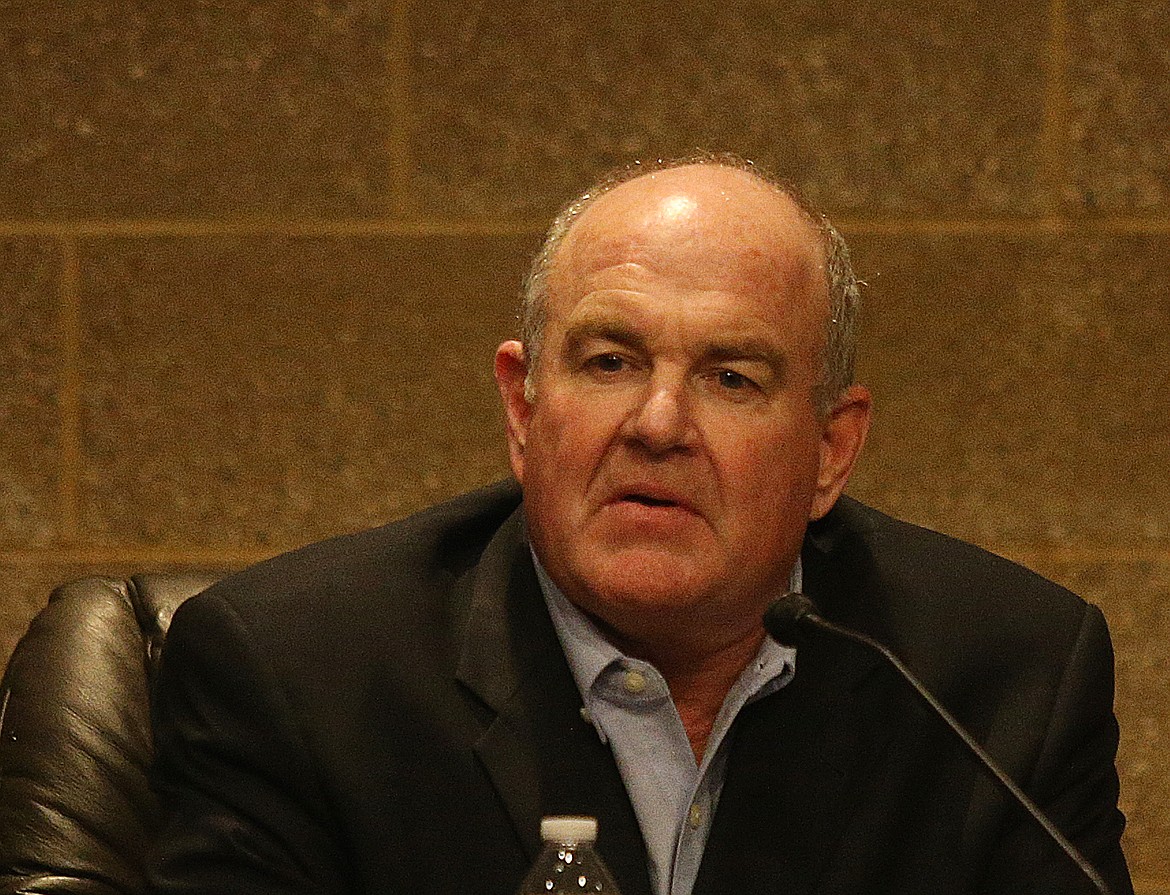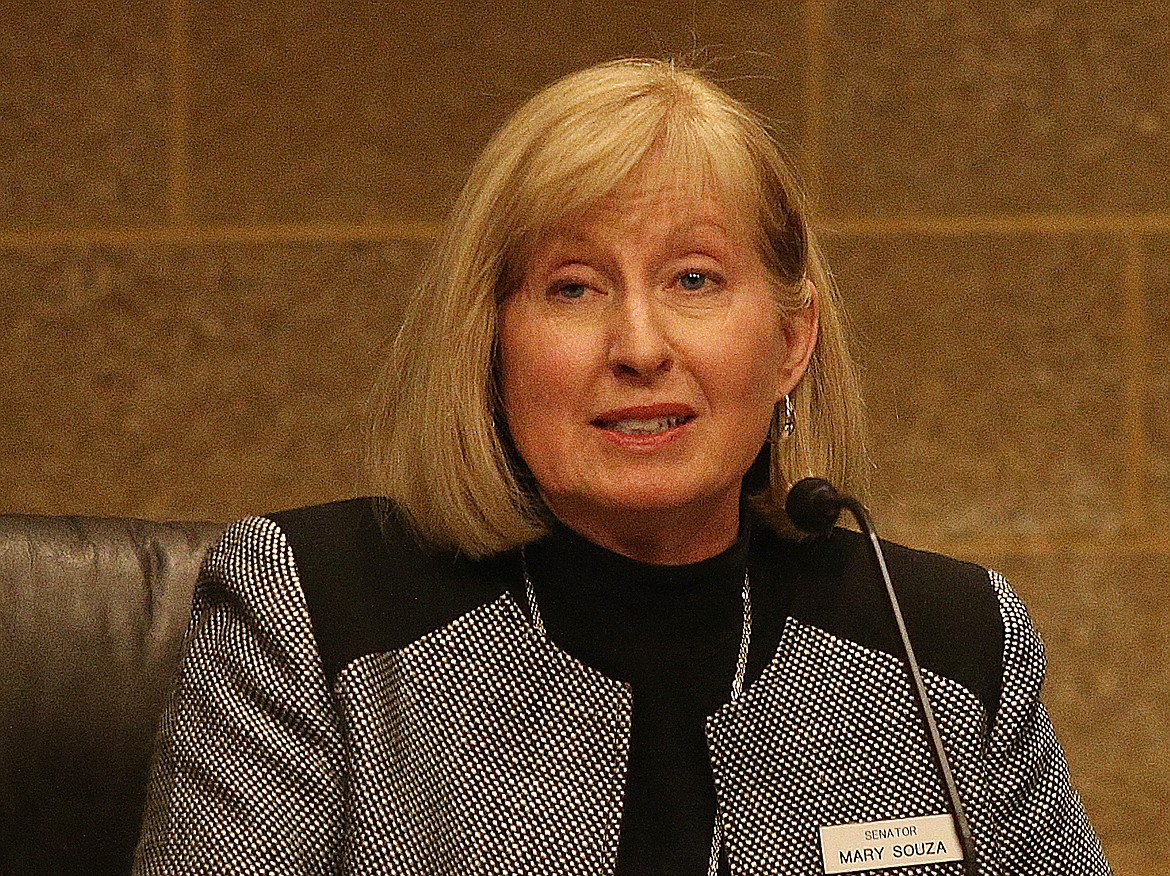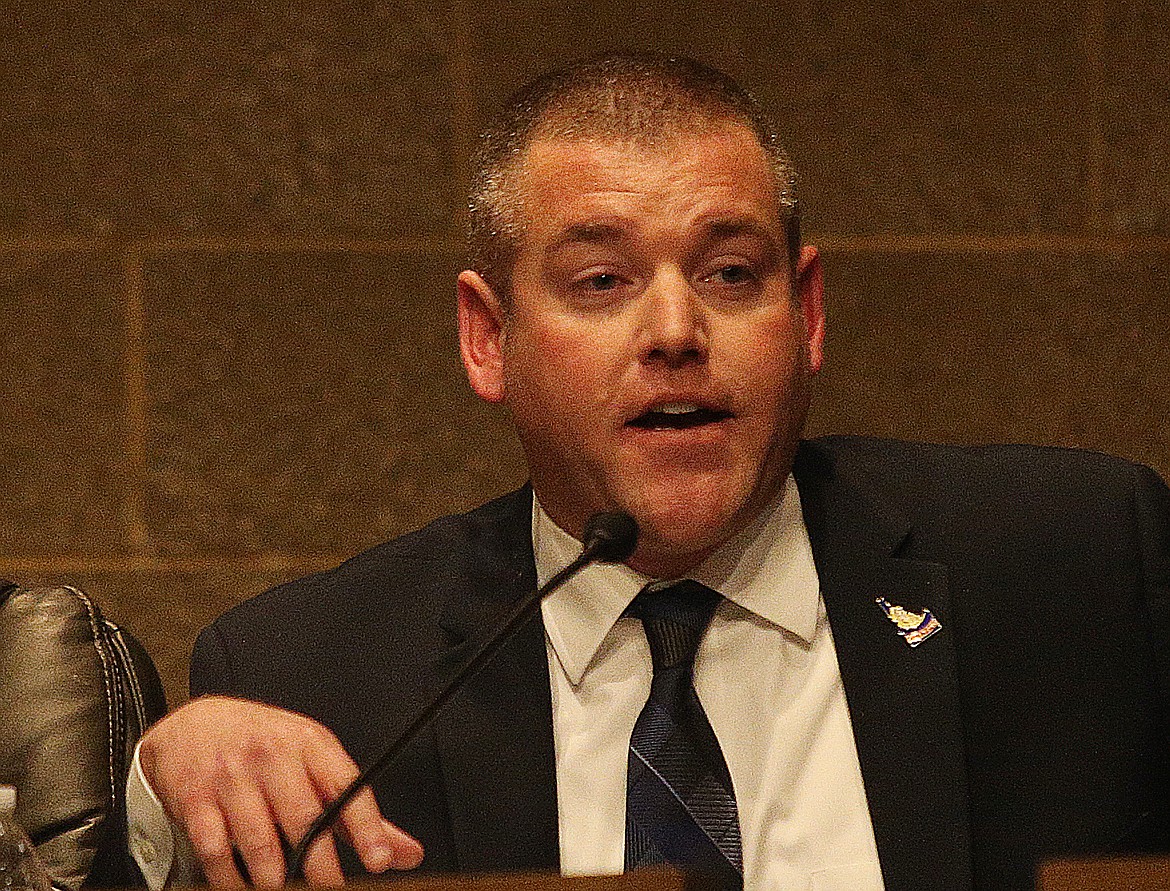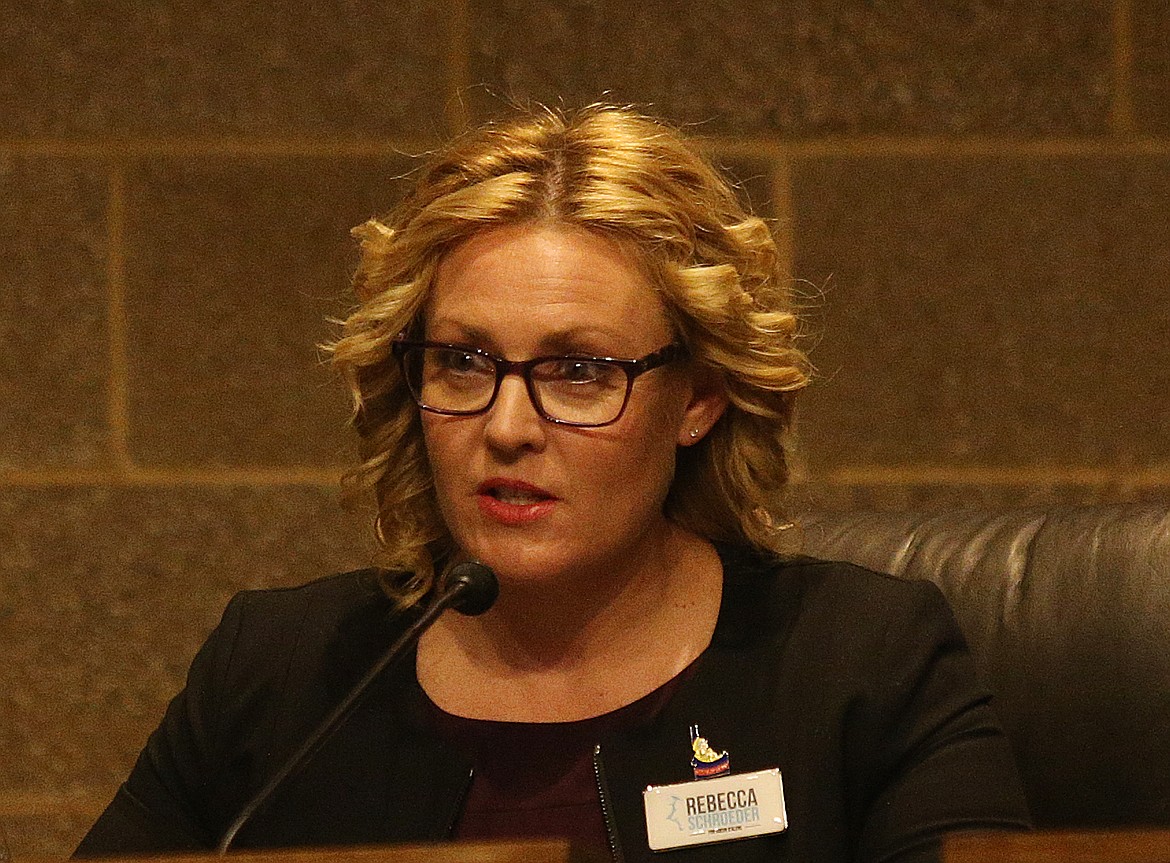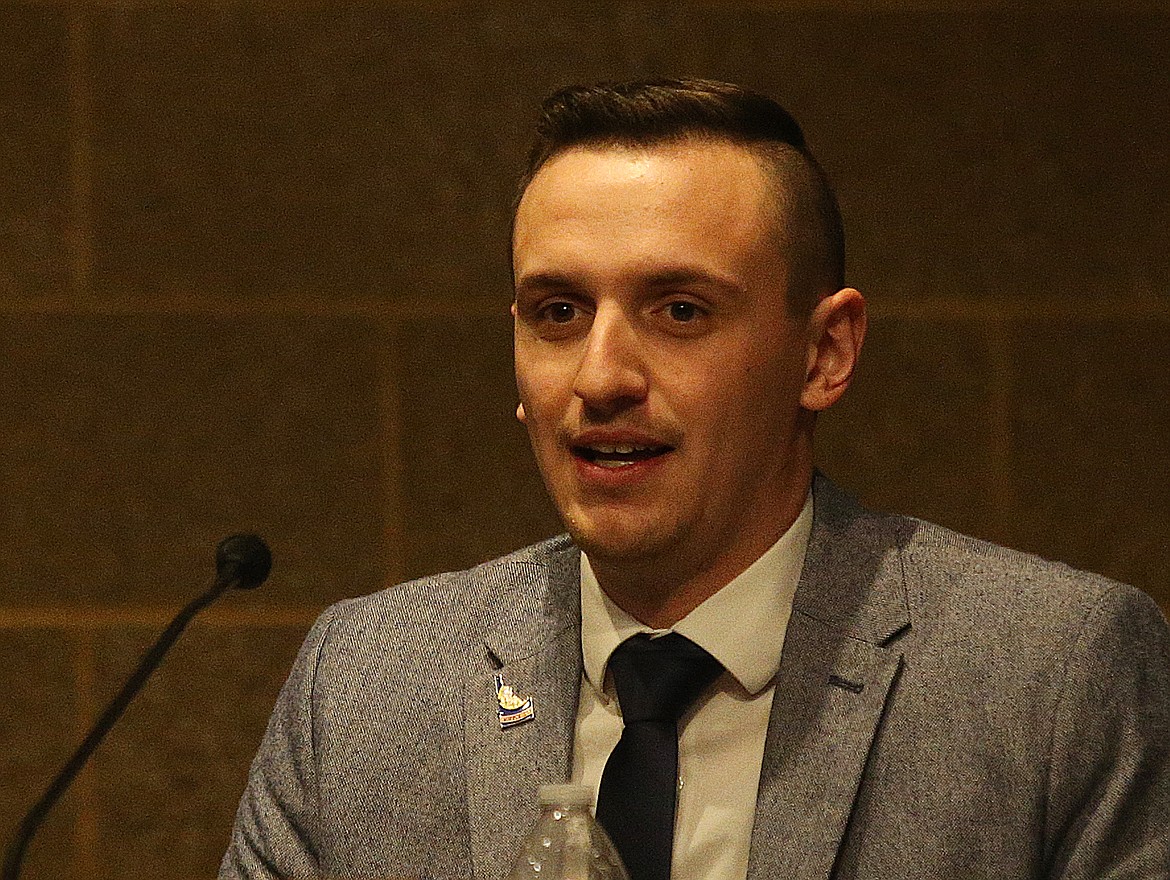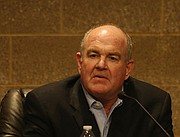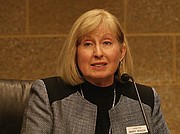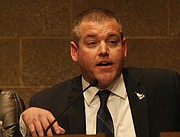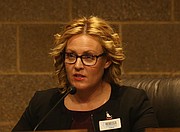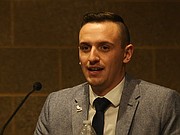District 4: Hot button issues show differences
COEUR d’ALENE — Candidates vying to represent District 4 at the state capitol squared off at a forum Tuesday night. Education, health care, the economy, and experience topped the discussions.
Question: What should the state minimum wage be, and should cities be able to set their own?
Democratic nominee for state Senate Cory Jane English said she believes “cities should be able to set their own.” Just look at Coeur d’Alene, said English.
“We are a tourist haven and have plentiful service jobs. It’s the waitresses, the people that dock our boats, the people that clean our hotel rooms that make things run around here,” she said.
At the same time, said English, the average age of those minimum-wage workers is 35.
“These are people that are raising families,” she told a standing-room-only crowd at the Coeur d’Alene Library.
The minimum wage should go up to $10 per hour, although there needs to be a local option because that wage rate may be different for farm communities, she explained. She also said the minimum wage rate “should be indexed to the consumer price index so we don’t get in this situation again.”
Incumbent Republican state Sen. Mary Souza, English’s opponent, countered that allowing municipalities to set their own minimum wage rates would create “a patchwork across this state from Coeur d’Alene to Rathdrum to Athol to Hayden. They could all be different,” explained Souza, adding that would “be a very complex thing for the state and for businesses to deal with.” In a thriving economy, “we don’t need minimum wages set by government.”
Republican nominee for state representative Jim Addis said, “The best thing to increase the minimum wage is to increase educational opportunities across the gamut” of career tracks. He cited a recent conversation with a friend who was looking to hire a mechanic at his shop. When he offered a recent graduate $15 per hour, the graduate turned him down because he said he could earn that much working at Panera, said Addis. Referencing President Richard Nixon’s policies, Addis, an economics major, added that “What we’ve found in the past is anytime we try to artificially impact free market solutions, it backfires on us.”
Addis’s opponent, Democratic nominee Rebecca Schroeder, said Coeur d’Alene faces unique challenges trying to compete with Spokane for workers.
“You only have to look at the traffic going to Spokane each morning and coming back each night to see that it’s a battle we aren’t winning,” she said. “More important than consistency across the state is giving local communities the ability to value workers in a way that makes them competitive with their neighbors.”
Idaho is 50th in the nation in weekly worker wages and isn’t keeping up with the cost of housing, she added. Local families are suffering as a result, she said while expressing support for local control over minimum wage rates.
Incumbent Republican state Rep. Paul Amador said the state should be focused on building “a high-quality education system and training system that produces $30, $50, and $60 per hour jobs” rather than only minimum wage jobs. He added that a patchwork of different minimum wage laws across the state would be obstacles to business, and that in Seattle where local government raised minimum wages, a University of Washington study showed that those workers’ total hours per week declined even as their hourly wages increased.
“It didn’t necessarily have an economic benefit for individual workers,” Amador said. “The market has proven that we’re doing quite well and you’d have a difficult time trying to find a minimum wage job right now.”
Democratic nominee for state representative Shem Hanks said he’s running to allow local communities the right to determine their own minimum wage rates.
“We can’t just rely on everyone getting these $30, $50, $60 per hour jobs,” said Amador’s opponent. “We have to create an economy that’s working for everyone. We have to work as a community to ensure that we’re all supported.”
Idaho is perennially at the top of rankings for the most minimum wage jobs and 50th in the nation for weekly wages per worker, he added.
Question: Why should voters elect you rather than your opponent?
Hailing from a doublewide trailer in Hayden in his youth, having a decade of experience as a restaurant server, and currently working in mental health, Shem Hanks framed himself as the better representative of the community. Hanks said “There is a misconception in politics that administrators or career politicians are good representatives of the community. I am the only one who worked today” to pay rent, Hanks explained. “I can represent those servers,” and “I feel like we do need mental health professionals in our state legislature.”
That brought laughter from the crowd.
On the other hand, Amador referred to his record and his endorsements.
“You can look at my record and make a decision whether I have represented the community well,” he said.
He made two big promises when he was first elected, said Amador: to be a very strong advocate for education, and to be open and accessible to the community. Amador called his endorsement by the Idaho Education Association and the endorsement of the local school board chair “as good endorsements in education as you can get.” He added, “Sometimes I think I’m a glutton for punishment” for having participated in 20 or so town halls in the last two years.
Schroeder said that when she is elected, no one will set the agenda for her but the people of the district. She hasn’t accepted a dime from corporate political action committees, said Schroeder.
“There is a big difference between the people’s agenda and the agenda of special interests,” she added. She also said that her educational background in environmental chemistry uniquely qualifies her to make informed decisions about the best ways to protect Coeur d’Alene’s ecologically-based tourism.
Addis said his life’s experiences have prepared him for legislative service. He spoke of a long, productive career that provided jobs, health care, and happiness to families in Idaho, plus his longstanding service to the community. He mentioned endorsements from organizations that represent “thousands of workers, citizens in the state ranging from loggers, farmers, builders, doctors, and dentists,” and discussed his self-financing his campaign. “I’ve got skin in the game here,” he said. He was endorsed because he works hard for “a strong economy, backed by a great education system, and compassion to take care of citizens.”
“I pledge to do my all for District 4,” he said.
Souza said each year legislators vote on about 300 bills, only a few of which are ones that legislators personally push through the legislative process. One of Souza’s bills during the last legislative session increased transparency in public records.
“Increasing accountability and transparency in government processes” has been a focus of many of her bills, she added. Souza also cited a bill she worked with other senators on to change “some really important portions” of the foster care law “to make it work better for families.”
English emphasized that she and Souza saw things differently.
“I actually believe that government does have a role in the betterment of the lives of people beyond getting out of the way,” she said. “There are things government can and should do for us.” English said she sees little progress in the areas of education and health care. Classroom sizes are too big, teachers are underpaid, there is no funding for pre-kindergarten education, and counselors have too many students on their hands.
“This has a direct bearing on outcomes and safety in schools,” she said.
Question: There is a legislative genie empowering you to sponsor one bill that is guaranteed passage and the governor’s signature. This has to be something the Idaho legislature and governor can singlehandedly address, not a federal issue. What is that bill?
Schroeder said, “For me that’s easy. I have been a vocal supporter of Prop 2 that would close the Medicaid gap. It’s something that’ll need protection inside the statehouse even after the people voice their opinion on that. We have 62,000-plus Idahoans that are hard-working, making too much to qualify for Medicaid, but not enough for a subsidy on the exchange. Closing that gap is something I’ve been working on long before I decided to run,” said Schroeder. She said she would be proud to put forth a bill to “implement the law and provide health care for Idahoans who are struggling without it right now.”
Addis said, “My overwhelming goal would be to adequately fund education.”
“Education and our economy are inextricably intertwined. You can’t have one without the other,” he said.
Funding early childhood education, reading at the 3rd-grade level, and not having kids drop out in the 8th grade results in increased wages, fewer drug problems, and more contributing members of society, said Addis.
“We then have a populace ready to take the next step. Whatever it is you want to do, it sets our society up for success and successful people are self-actualizing. Self-actualizing people make good decisions, are happy, and contribute to society,” he added.
Amador said he would seek to move forward on a bill he has co-sponsored in the past, an early childhood education initiative called the Idaho School Readiness Act. It’s the result of collaboration with Idaho Businesses for Education and the Idaho Association for the Education of Young Children, he said. Idaho really struggles at pre-kindergarten preparation, he said.
“Schools have been seeing it more and more,” Amador said.
Research shows that “if you’re not ready to be successful when you enter kindergarten, you’re never going to catch up,” said Amador. He said he has been amazed at how much learning and development goes in the first years of a child’s life, as evidenced by his 13-month old son, Peter.
Hanks said neighboring states in the Northwest “all pay their servers at least the federal minimum wage.” As a former server, he said he didn’t live paycheck to paycheck. “You live day to day.” It is very hard to prove your weekly income as a server and thus very hard to buy a car, explained Hanks. States that do pay them a higher minimum wage see a lower poverty rate, higher take-home pay, and more stability in employment, he added.
Souza said she would repeal the sales tax on food. The proposal passed the legislature two years ago but was vetoed by Gov. Butch Otter. Since both gubernatorial candidates have said they’d support a grocery tax repeal, Souza said she’s confident that the measure will pass during the next legislative session.
“Philosophically it’s important that we have our basic sustenance not taxed by government,” she said. The repeal would help businesses in Idaho towns that border states with no food sales tax, she added.
Assuming that Prop 2 would pass and take effect, English said she would like to see a “change in perspective” that makes “education a priority in the statehouse, our communities, and our homes.” Love for our children needs to be translated into valuable education for them, she explained.
“This is where we’re falling short,” she added.
To remedy the situation, the state needs to not determine what bare minimum it can get by with, but to chart a course to the best, brightest outcomes possible. At present, the state is not on a trajectory to ever get to such goals, English said.


